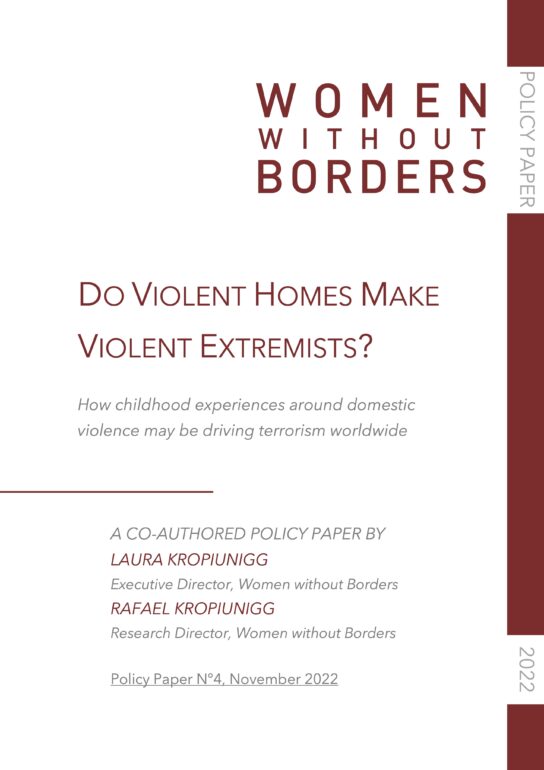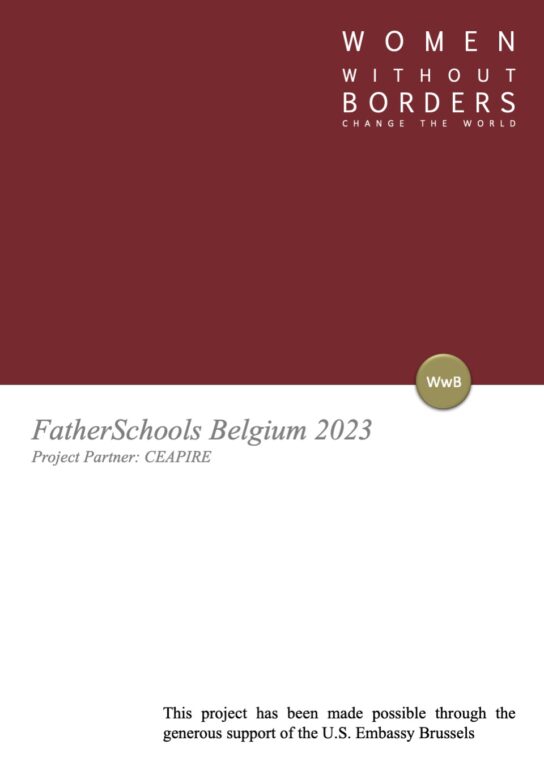In our fourth policy paper, WwB’s Executive and Research Directors discuss the nexus between domestic violence and violent extremism, asking whether childhood experiences around domestic violence may be driving terrorism worldwide. The policy paper proposes mainstreaming gender-inclusive programming to uncover and address hidden gendered drivers of violent extremism. In so doing, it puts forward three tangible recommendations at the practitioner, researcher, and policymaker levels.
Linking family violence to perpetrator biographies
Until recently, gender-based violence figured as a long-overlooked driver of radicalisation. In recent years, however, the nexus between terrorism and violence against women has become increasingly difficult to ignore. A deeper consideration of perpetrator biographies has led journalists and academics alike to recognise that domestic violence has touched the lives of most terrorists; many have been witnesses to the crime in their childhood homes. Some researchers now contend that ‘misogyny is often the gateway, driver, and early warning sign of most of this [extremist] violence’ (Díaz & Valji, 2019, pp.44, 38). Evidence-based research in support of this hypothesis has been on the rise.
A recent multi-country study comprising three thousand survey participants found that individuals favouring hostile sexism and gender-based violence are most likely to support violent extremism. The researchers also identified restrictions on women’s rights as a common early warning sign for potential violent extremist engagement. Conversely, factors like religion, gender, age, employment, and education—all of which arguably have received far more attention to date—were not found to be correlated or strong predictors (Johnston and True, 2019). Supported by a mounting evidence base, the understanding that gender-based violence and discrimination is contributing to a rise in violent extremism has now also begun to permeate the highest international policy-shaping levels. In 2019, UN Secretary-General António Guterres took note that terrorist attacks, extremism, and other violent crimes are directly linked to the ‘violent misogyny’ of offenders (Guterres, 2019).
Growing consensus that violent misogyny contributes considerably to the spread of violent extremism raises several key questions. Why has gender-based violence and discrimination been missing from the conversation around drivers of extremism for so long? How can we ensure that information lags and knowledge gaps are plugged and adequately addressed, in real time and with context in mind? Does the P/CVE practitioner environment offer clues and insights that could aid politicians and policy-shapers to avoid remaining in a perpetual loop of playing gender-policy-catch-up?
This policy paper touches upon the above questions by exploring hidden gendered contributing factors and drivers leading to violence and extremism. In employing the Women without Borders ‘MotherSchools: Parenting for Peace’ Model as a case study example, it further proposes that domestic violence fuels dysfunctional family dynamics that can act as a significant push factor.
Read the policy paper in full here.



